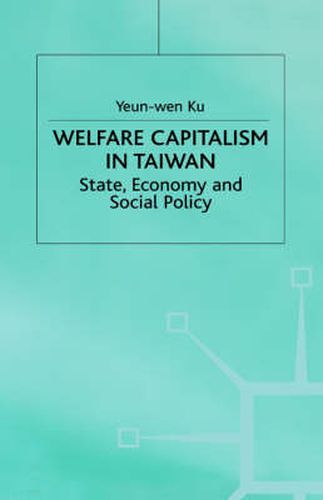Readings Newsletter
Become a Readings Member to make your shopping experience even easier.
Sign in or sign up for free!
You’re not far away from qualifying for FREE standard shipping within Australia
You’ve qualified for FREE standard shipping within Australia
The cart is loading…






This title is printed to order. This book may have been self-published. If so, we cannot guarantee the quality of the content. In the main most books will have gone through the editing process however some may not. We therefore suggest that you be aware of this before ordering this book. If in doubt check either the author or publisher’s details as we are unable to accept any returns unless they are faulty. Please contact us if you have any questions.
This book explores the development of state welfare in Taiwan, focusing on the interconnection between capitalist development and state welfare from 1895 to 1990, using an integrated Marxist perspective to which the capitalist world system, state structure, ideology, and social structure are considered simultaneously. It argues that neither citizenship nor welfare needs were the concern of Taiwanese social policies. A decline in legitimacy and risen social movements forced the state to expand welfare, namely the National Health Insurance, in the 1980s.
$9.00 standard shipping within Australia
FREE standard shipping within Australia for orders over $100.00
Express & International shipping calculated at checkout
This title is printed to order. This book may have been self-published. If so, we cannot guarantee the quality of the content. In the main most books will have gone through the editing process however some may not. We therefore suggest that you be aware of this before ordering this book. If in doubt check either the author or publisher’s details as we are unable to accept any returns unless they are faulty. Please contact us if you have any questions.
This book explores the development of state welfare in Taiwan, focusing on the interconnection between capitalist development and state welfare from 1895 to 1990, using an integrated Marxist perspective to which the capitalist world system, state structure, ideology, and social structure are considered simultaneously. It argues that neither citizenship nor welfare needs were the concern of Taiwanese social policies. A decline in legitimacy and risen social movements forced the state to expand welfare, namely the National Health Insurance, in the 1980s.